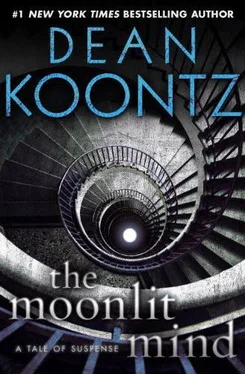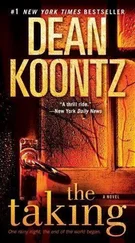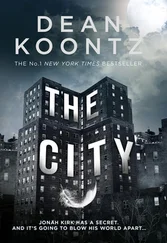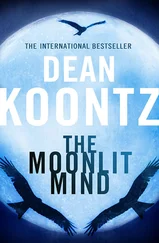The junior butler, Ned, appears and hurries down the front steps to help the overburdened driver. As the woman precedes them up the steps to the front door, Crispin is struck by her resemblance to the young Jardena, of whom framed photographs can be seen on the piano in the music room and elsewhere in the house.
If some grandchild or grandniece of Jardena’s has come to visit, Crispin is not told about her. And he never sees her again until a night in late September.
That he does not reach a disturbing conclusion about those two encounters is perhaps understandable. Less explicable, however, is how he could chance upon his mother kissing one of the housemaids, Proserpina, and fail to be thereafter deeply troubled by it or even to remember the incident except now and then just before falling asleep at night.
Wandering the house one afternoon, not seeking three white cats but in the grip of his peculiar conviction that Theron Hall has grown and is still growing, mentally vague and half inclined to lie down and take yet another nap, Crispin opens the door to the sewing room and finds them in a clinch. Proserpina stands with her back against a wall, and Clarette presses hard against her, grinding her hips, their mouths locked. They are breathing as if something has excited them, and their hair is disarranged. Clarette’s blouse hangs half unbuttoned, and the housemaid’s hand squirms inside, as if searching for something.
They are at once aware of the intrusion, but they are not in the least embarrassed to be discovered kissing. They smile at him, and his mother says, “Did you want something, Crispie?”
“No, nothing,” he says and at once retreats, closing the door behind him.
He hears a burst of laughter, both of them amused. Mortified, as if he is the one caught in some transgression, he means to flee, but instead he leans against the door, listening.
“By the way,” his mother tells Proserpina, “the dates have been chosen. September twenty-ninth, the feast of the archangels, and then October fourth.”
“The feast of Saint Francis of Assisi,” Proserpina says. “Good. One close after the other. I’m tired of this city.”
“Who isn’t?” his mother says. “But I’m not tired of you.”
Crispin thinks they are kissing again, and he hurries away to the library. He spends some time wandering the stacks, looking for a book to read.
If he remembers what he interrupted in the sewing room, he has pressed it from his mind for the moment, as if between there and here he encountered a hypnotist who commanded him to avoid all thoughts of women kissing.
He believes that he is seeking an entertaining novel, one of high adventure, but the book he finds is in fact the one for which he is looking: A Year of Saints . He sits in a wingback armchair and pages through to September 29.
The feast of the archangels includes Saint Michael, Saint Gabriel, and Saint Raphael. The three are depicted in a painting and seem more fanciful than anything in a boy’s adventure story.
He pages forward to October 4, the feast of Saint Francis, who is shown feeding birds and adored by various animals. Crispin reads three paragraphs about this saint, learning nothing, except that any feast honoring the man probably doesn’t include meat.
He doesn’t consciously turn to July 26, the night of Mirabell’s migraine and the eve of her departure for Paris. He stares at the two-page spread for a while before he realizes what he has done.
This day in July is the memorial of Saint Anne and Saint Joachim, the parents of the Virgin Mary. He reads about them but is only further mystified.
Two nights later, he dreams of Nanny Sayo and Harley. The two are on Harley’s bed. The boy wears pajamas. Nanny is in pajamas and a red silk robe. She’s teasing Harley, tickling him, and he’s giggling with delight. “My little piglet,” she says, “my little piggy piglet,” and between his giggles, Harley oinks and snorts. She tickles him mercilessly, until he says, “Stop, stop, stop!” But then at once he adds, “ Don’t stop!” She tickles him to exhaustion, until gasping he declares, “I love you, Nanny, I love you so much,” as if this is a confession that she has been demanding from first giggle to last. Upon hearing the boy’s admission of devotion, she says, “Sleep the sleep,” and Harley at once collapses backward onto his pillows, out cold. For a moment, Crispin thinks his brother is feigning sleep, but it is no act. To the boy who can no longer hear her, Nanny Sayo says, “Piglet,” but this time with no affection, in a voice that chills Crispin. In the dream, he had opened the door to Harley’s bedroom without Nanny being aware that he was at her back. Now he closes it softly.
As September unravels toward October, Crispin once in a while remembers this little nightmare, and sometimes he thinks that it was a scene from real life before he dreamed it, that he actually chanced upon Nanny tickling Harley. Perhaps he has forgotten the event itself in favor of remembering it as a dream, because the real moment was too disturbing to consider. But that seems unlikely.
Day by day he spends more time alone, in part because Harley has concocted a silly fantasy about little people who live in the house and who are as elusive as the cats. In fact, the white felines have now become “little cats” to Harley, though he never previously said that they were small. Inevitably, a seven-year-old kid can from time to time be an annoyance to an older brother, and this is one of those times.
On September 29, the feast of the archangels, more than two months after Mirabell went off to France with the butler, Minos, and Mrs. Frigg, Crispin thrusts up in bed with a cry of terror, but his nightmare, whatever its nature, dissolves from memory as he blinks himself awake.
During the morning, hour by hour, his sense of dread grows. He feels that, having awakened from the dream, he is nevertheless in some sense still asleep and that he must now rouse himself from a waking dream in which he has indulged too long.
He eats breakfast and lunch, but the food has little taste.
He tries to read, but the story bores him.
He finds himself in the sewing room, staring at the place where he discovered his mother and Proserpina kissing. He does not know how he got here.
He stands at a library window, watching the traffic on Shadow Street. When his legs begin to ache and he consults his wristwatch, he is surprised to discover that he has been standing there for more than an hour, as if in a trance.
Everyone he encounters on the household staff seems to look at him with barely suppressed amusement, and he becomes convinced that they are whispering about him behind his back.
Shortly before three o’clock, a still, small voice inside him speaks of the miniature room. He realizes that this voice has been whispering to him all morning, but he has rejected its guidance.
Overcome by the conviction that he should be the best sneak that he knows how to be, that he must not let anyone know where to find him, he first loses himself from all the servants. And then, certain that he is unobserved, he makes his way to the third floor by the least-used staircase.
The immense scale model of Theron Hall looms over him. Never before has this exquisitely wrought miniature seemed ominous, but now it threatens as any haunted house in any horror movie ever made.
He half expects storm clouds to form under the ceiling and thunder to roar from wall to wall.
He first intends to ascend the ladder and study the structure from the highest floor to the lowest. But intuition — or something more powerful and more personal — draws him to the north side, where he has to bend down slightly to peer through the window at that end of the main hall on the ground floor.
Читать дальше
Конец ознакомительного отрывка
Купить книгу










